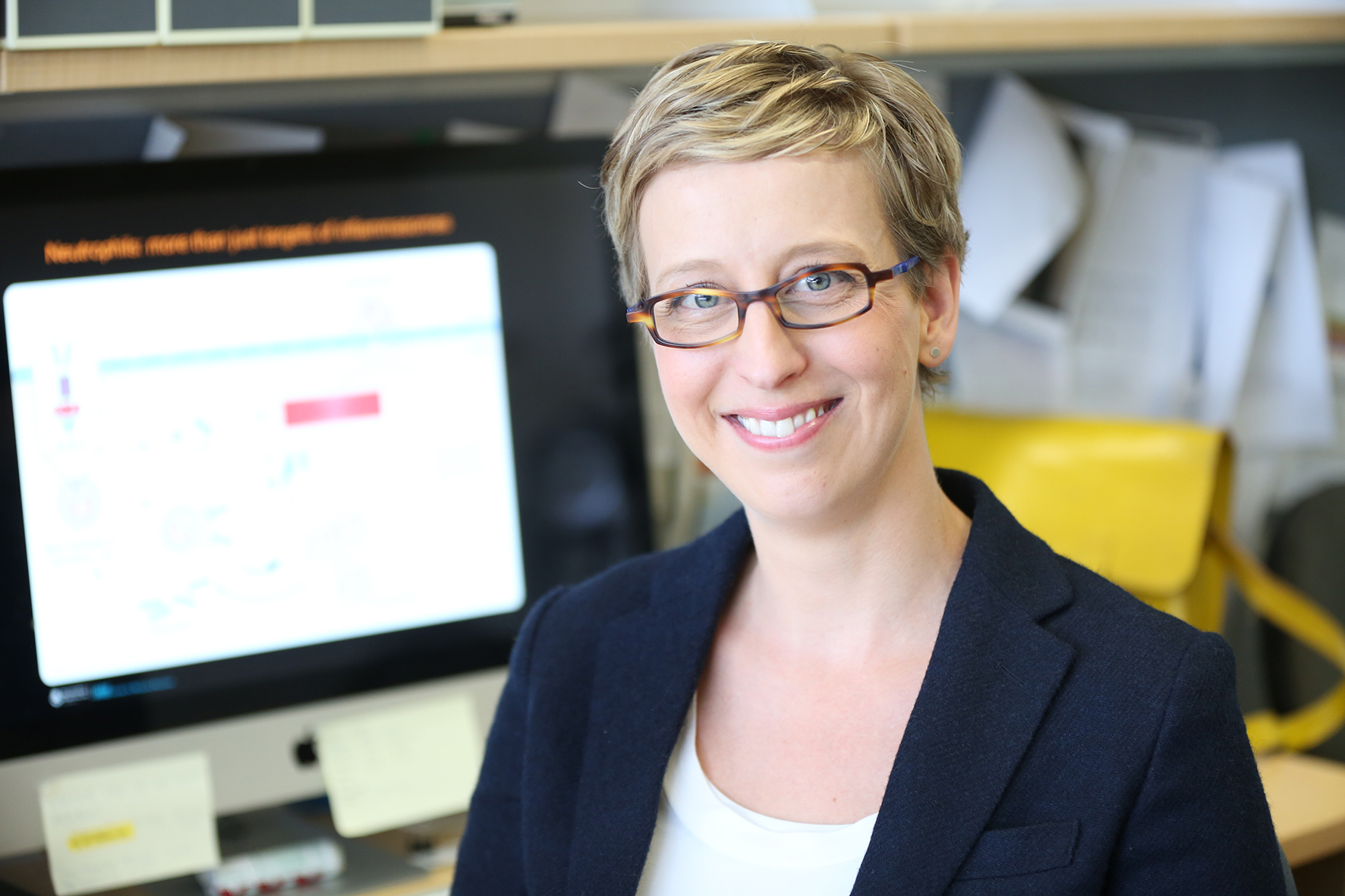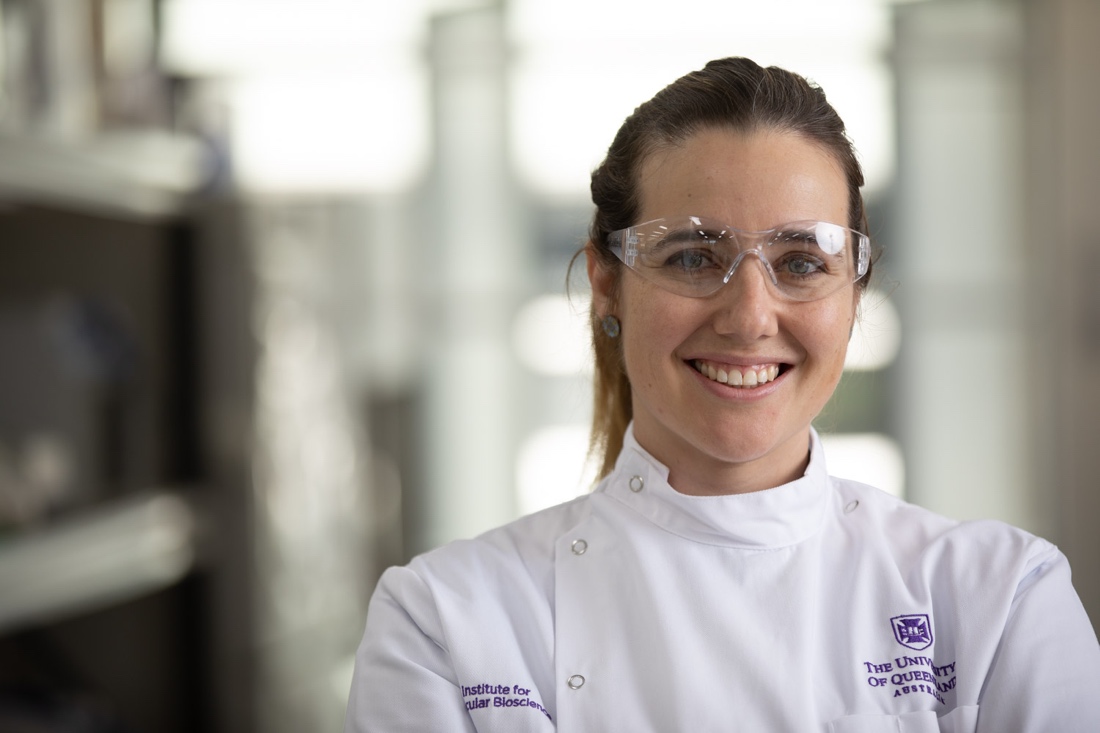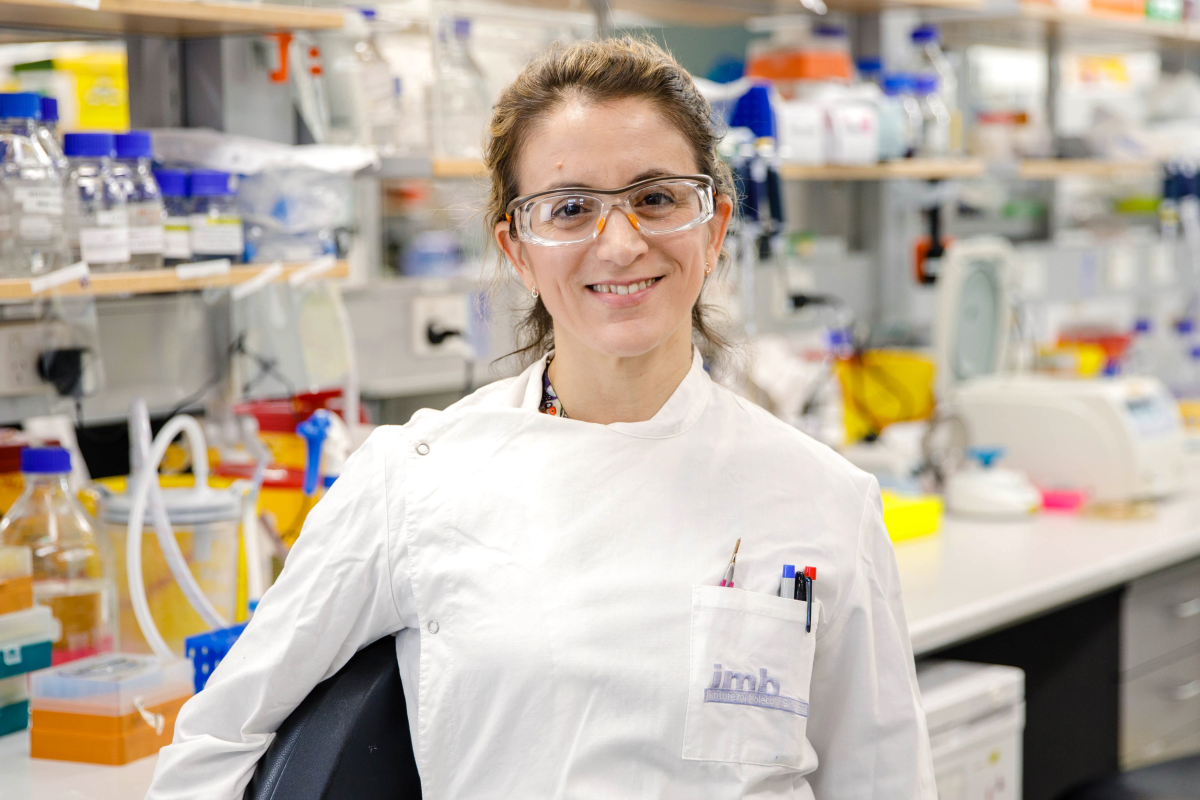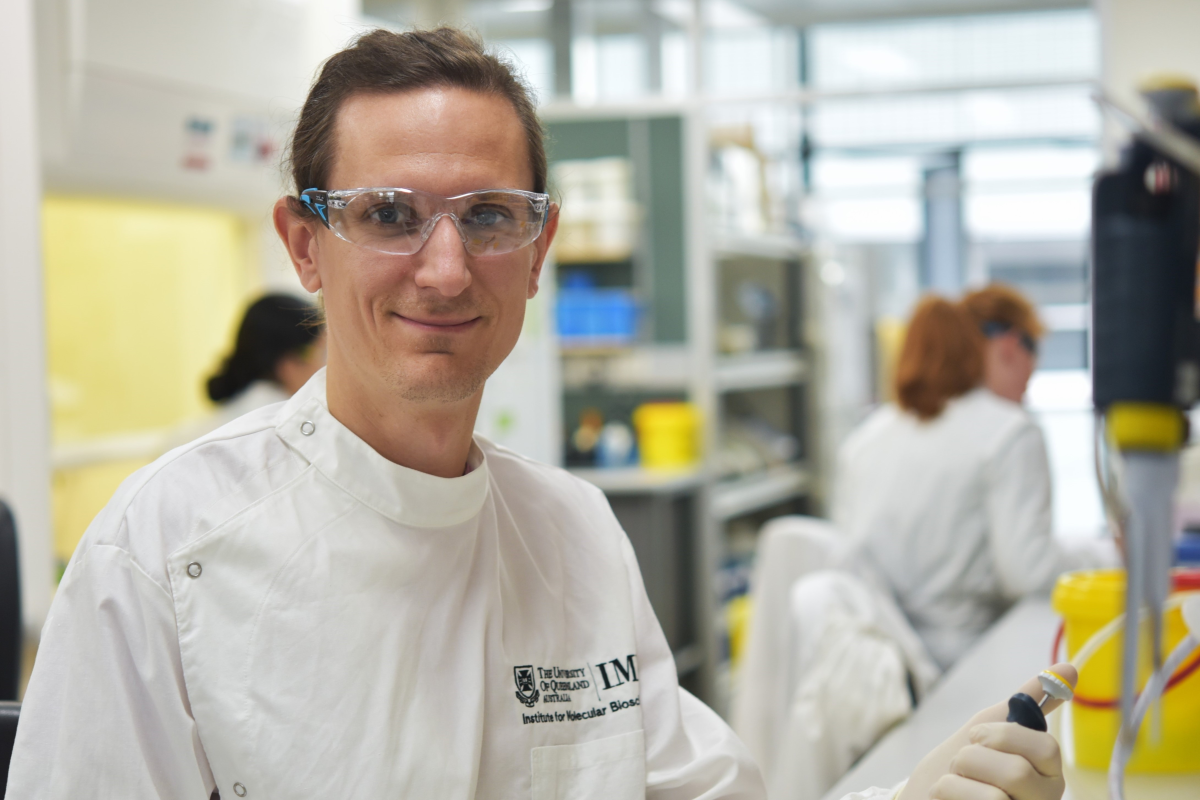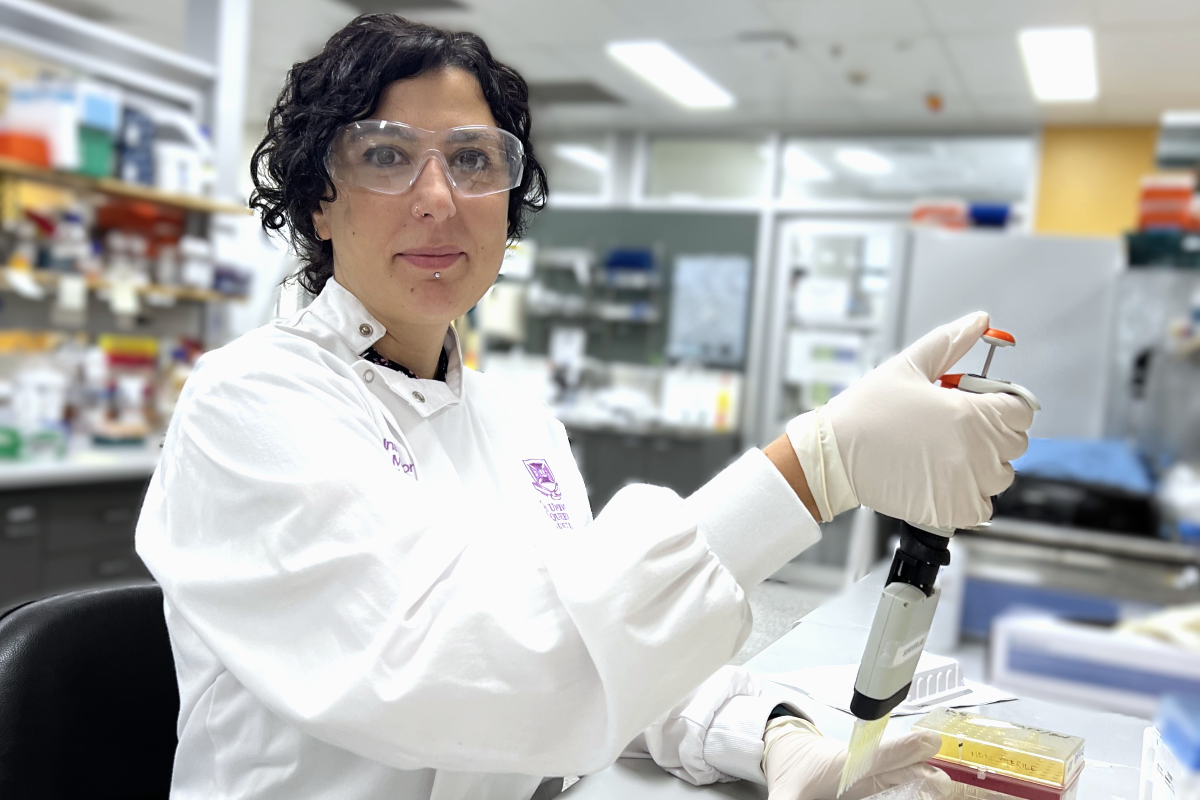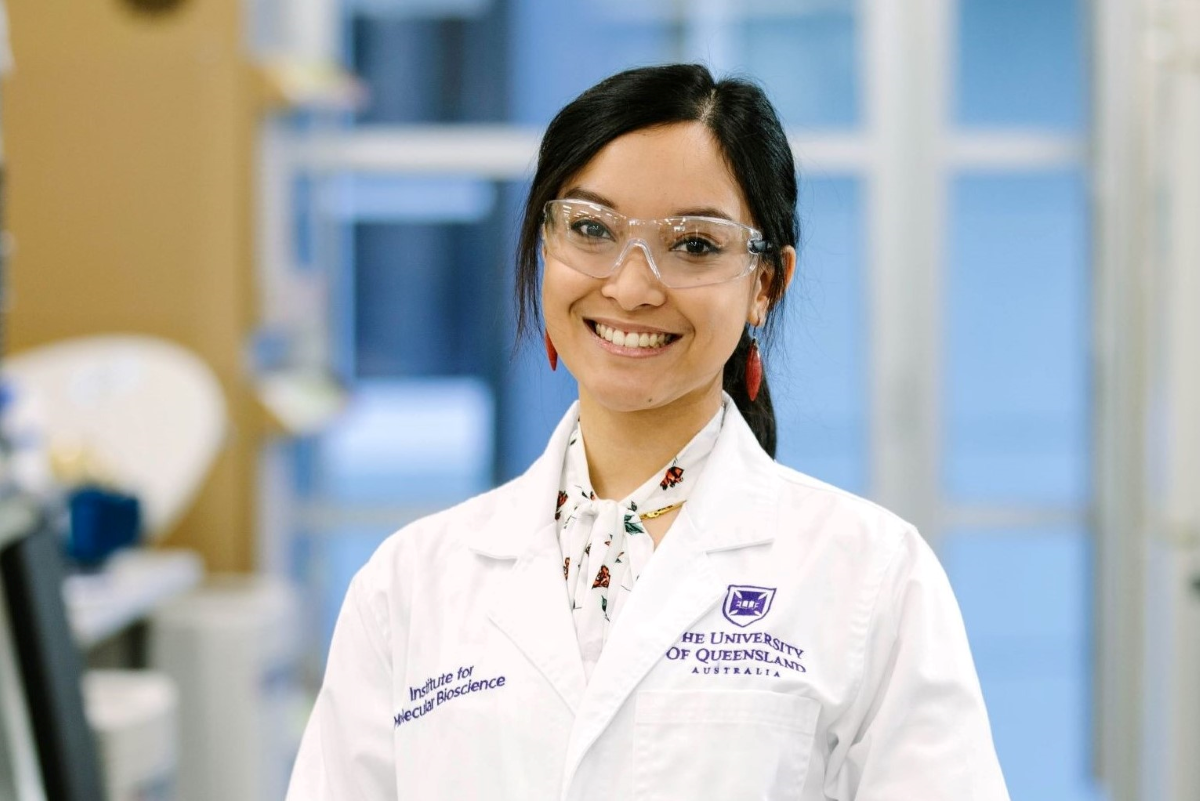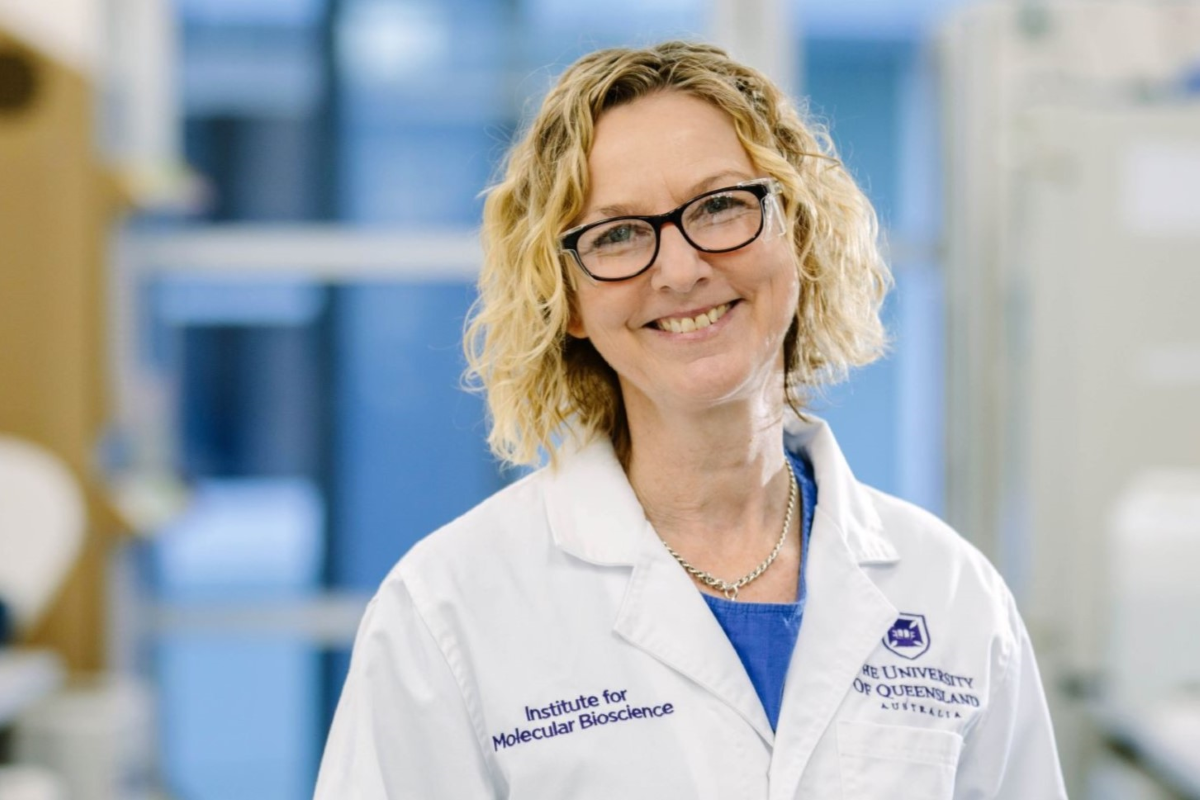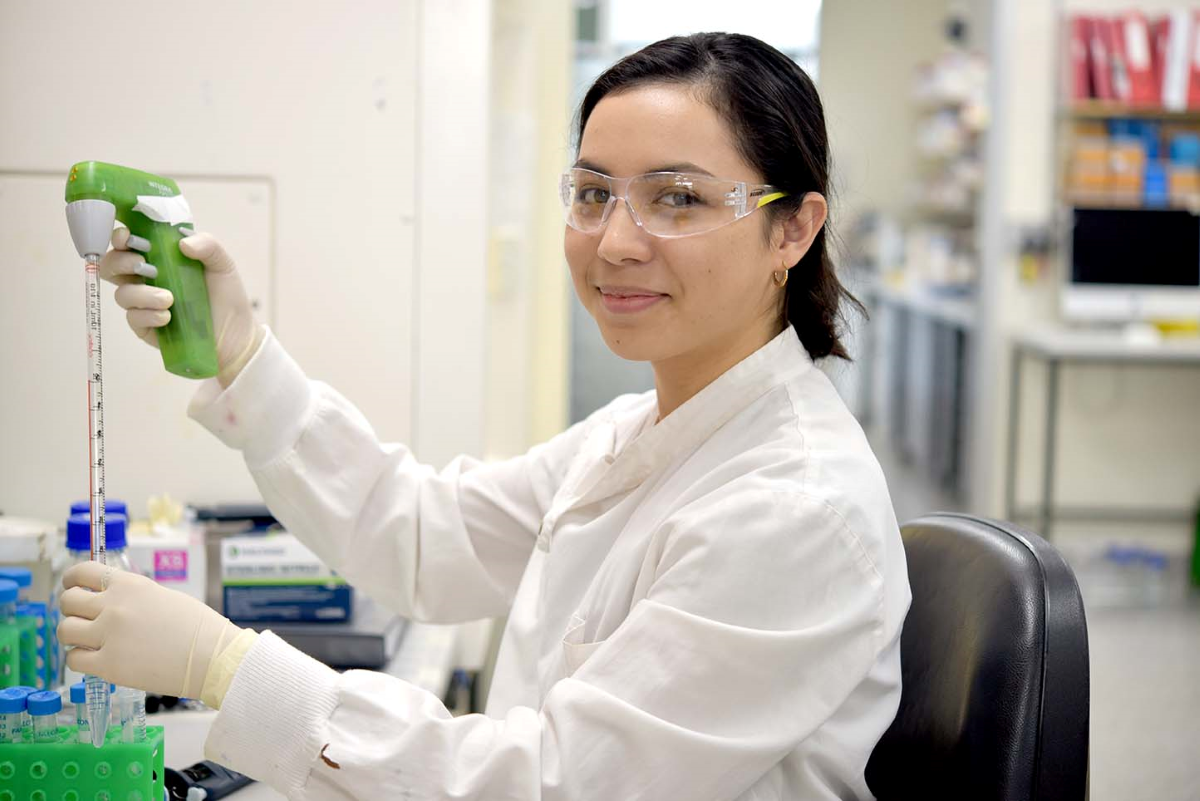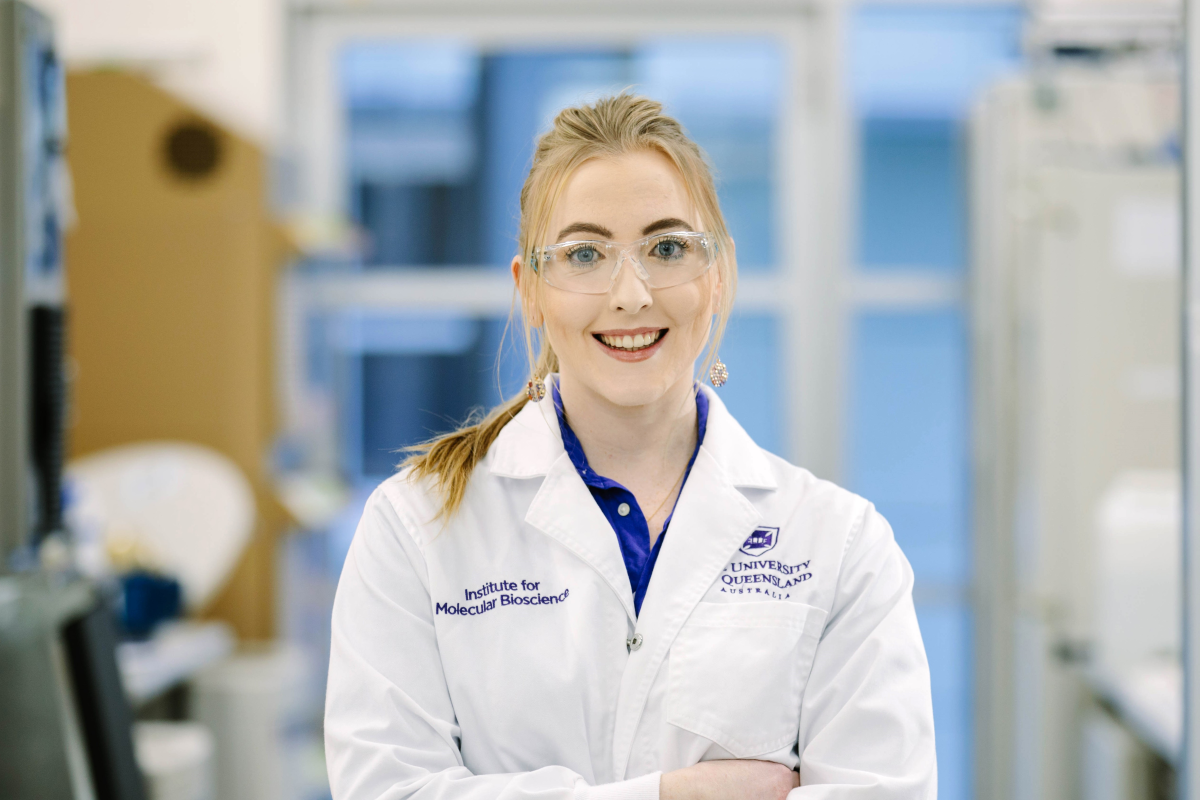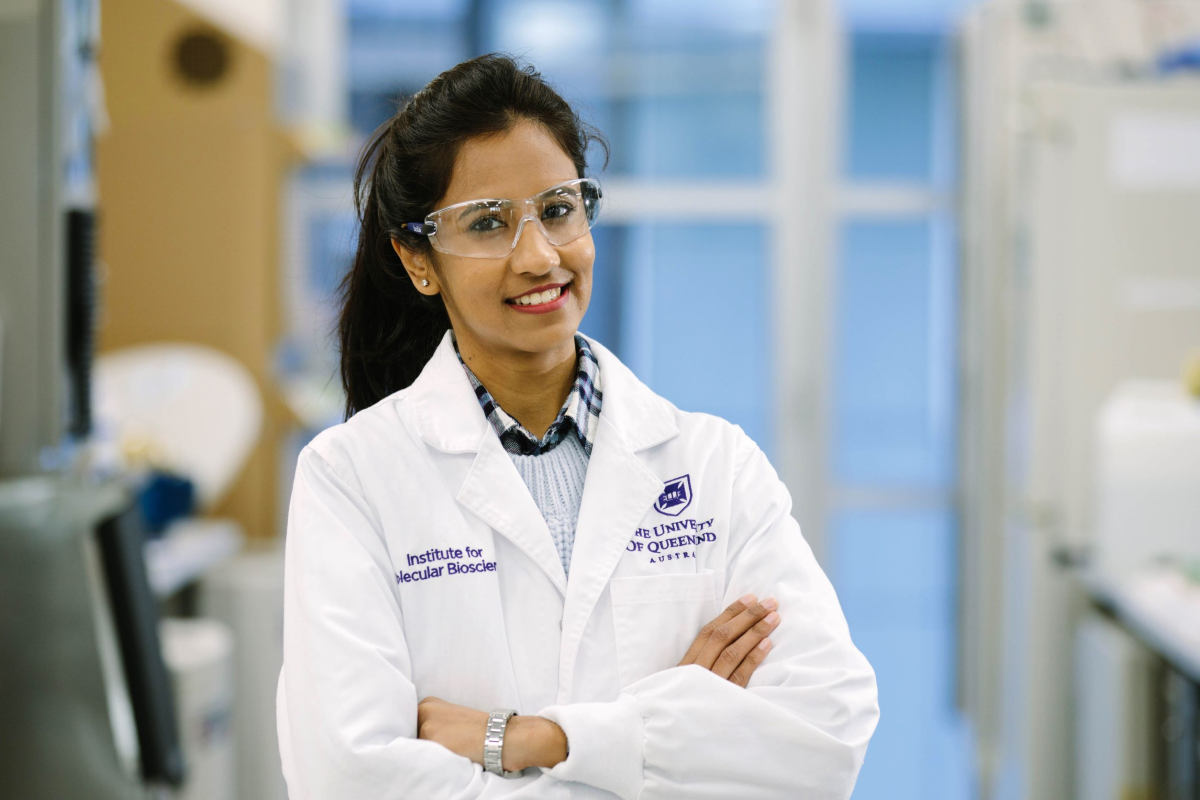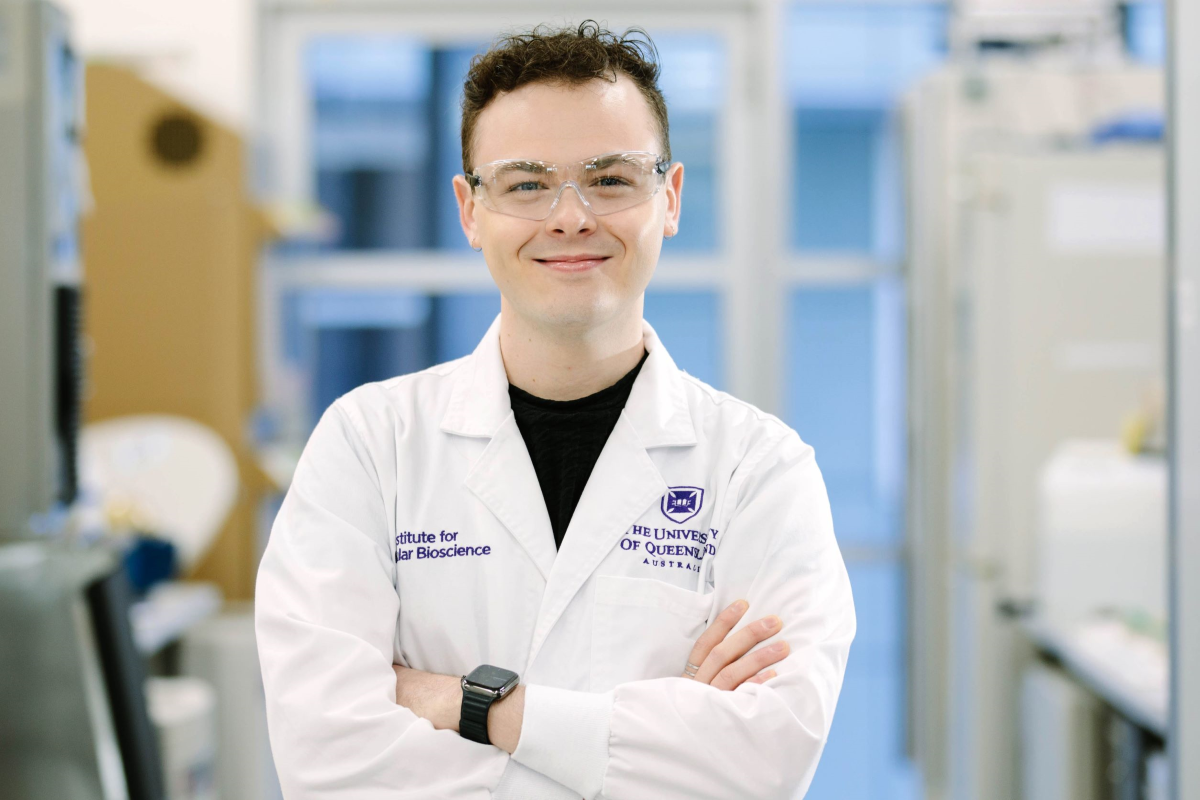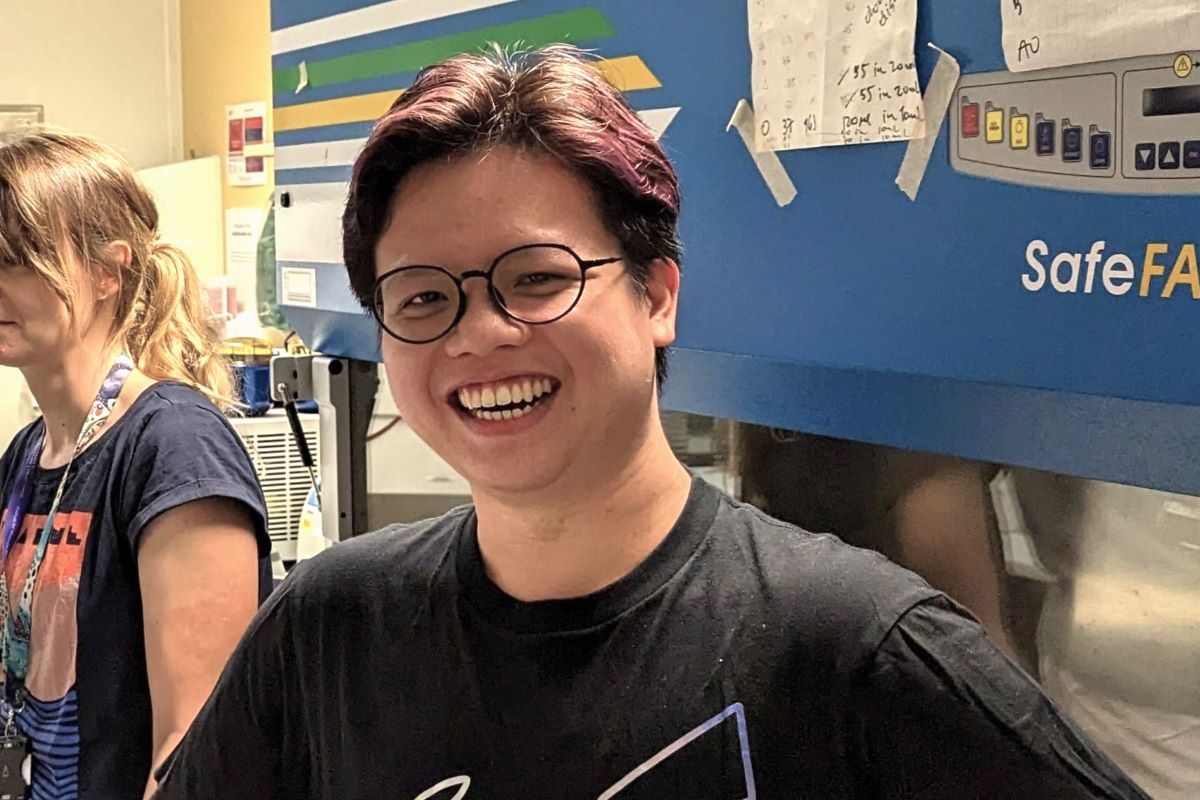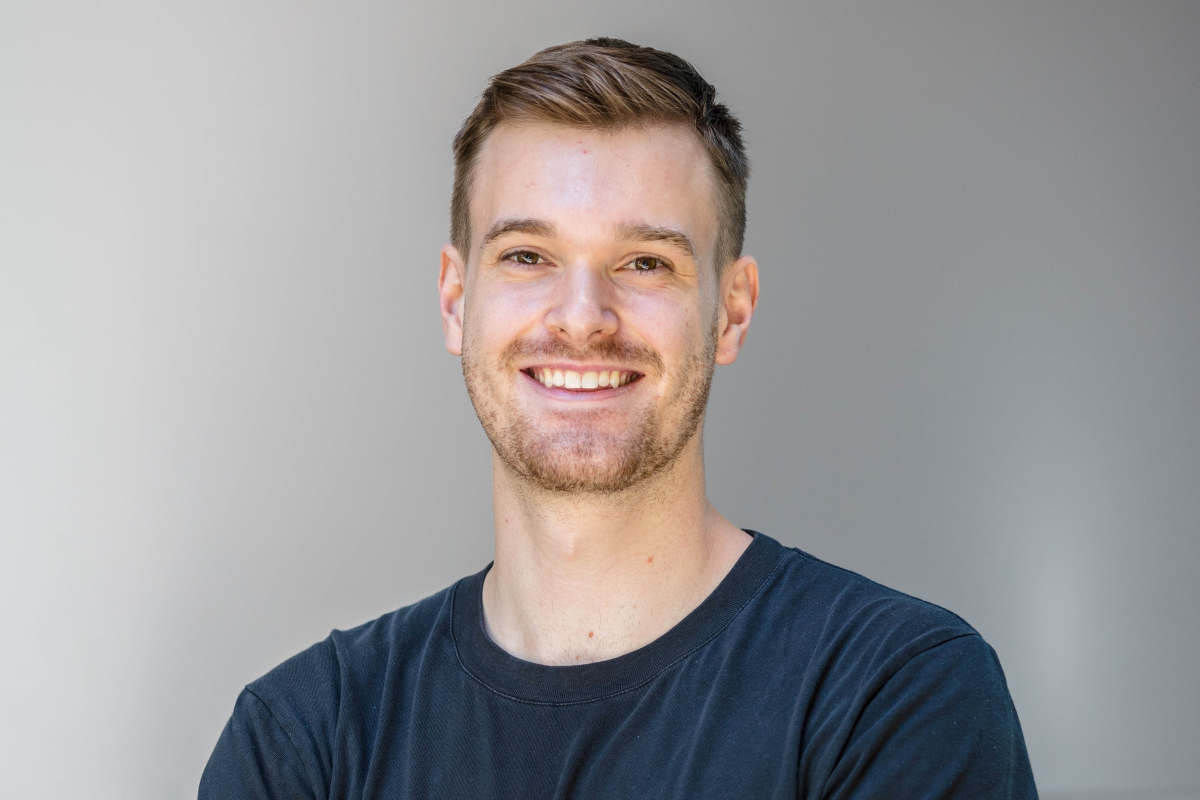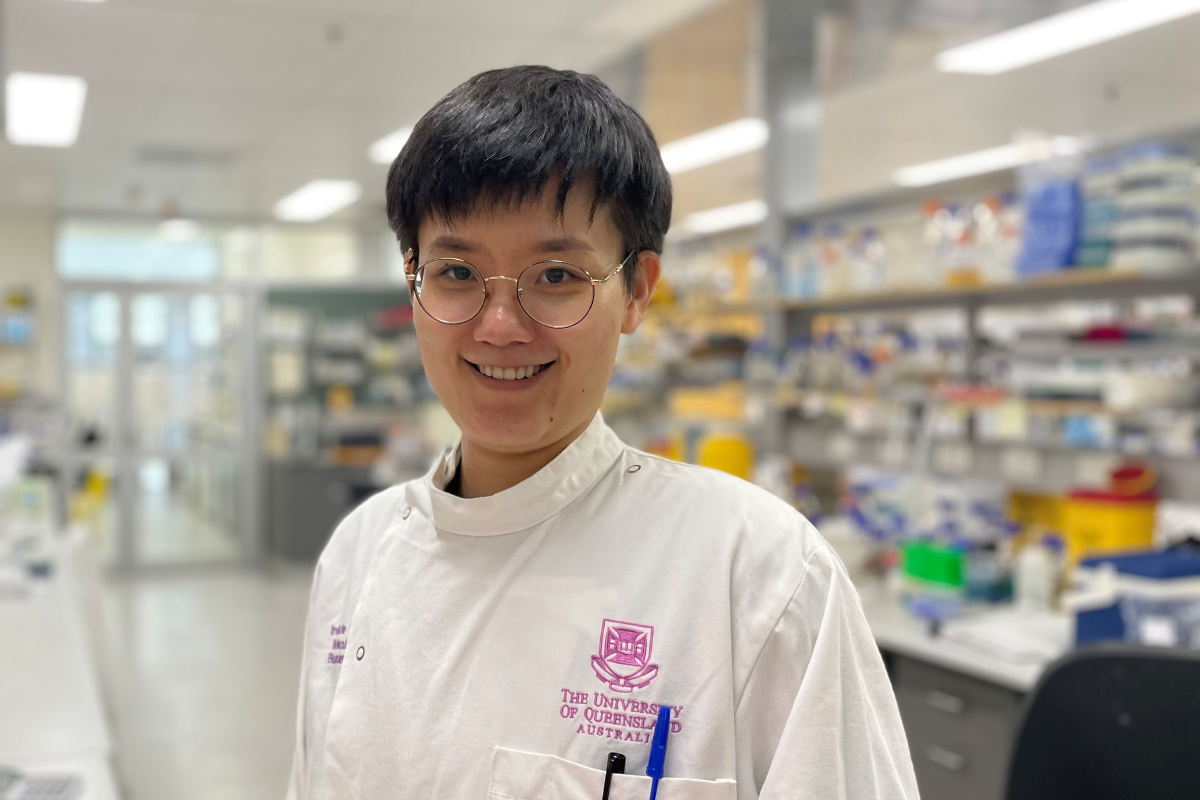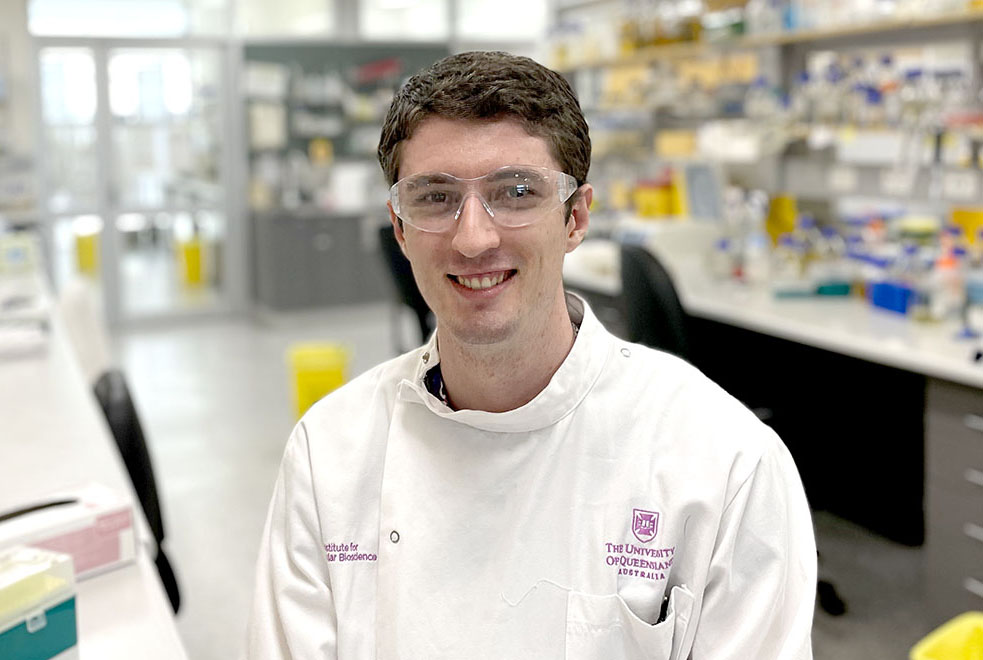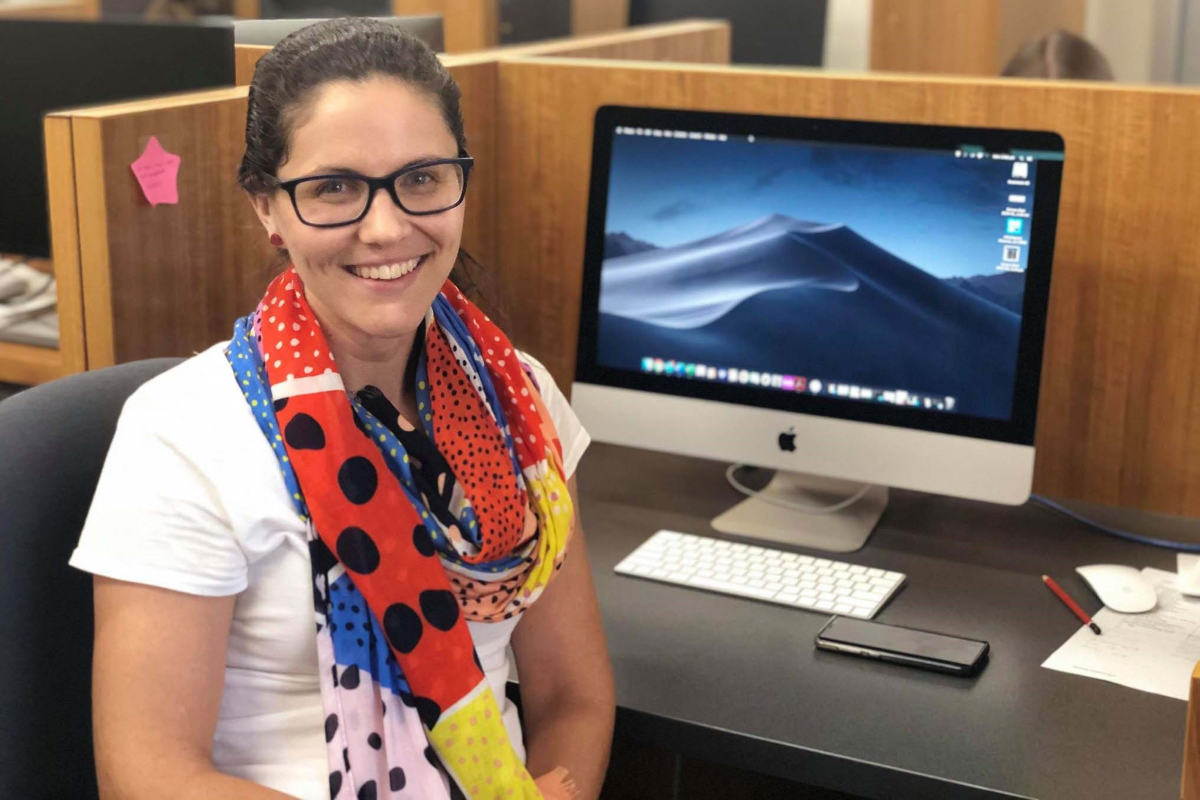About Us
In this updated animated film, The Inflammasome signalling pathway, Prof Kate Schroder explains the signal transduction pathway of inflammasomes - molecular machines at the heart of host defence, inflammation and disease.
INFLAMMASOME LAB
During injury or infection, our body’s immune system protects us by launching inflammation. But uncontrolled inflammation drives diseases such as gout, diabetes, neurodegenerative disease and cancer. The Inflammasome Lab is defining the molecular and cellular processes of inflammation. We seek to unravel the secrets of inflammasomes – protein complexes at the heart of inflammation and disease – to allow for new therapies to fight human diseases.
MEET THE TEAM
We are a diverse team of award-winning researchers who enjoy a collaborative, fun approach to science
INFLAMMASOME LAB IN THE NEWS
Discoveries and outstanding research achievements from the Inflammasome Lab have been featured in news articles around the world
7 May 2024, Technology shines a light on better bladder cancer detection
Frontier Inflammasome Therapeutics was allocated further 'top up' funding from CUREator. Kate Schroder summarises that the "funding from CUREator will enable our continued development – informed by advice from industry, pharma and local and international venture capitalists – of potential drugs for debilitating inflammatory conditions that currently do not have effective treatment options. This news was featured in a Brandon Biocatalys and a UQ News article.
17 Feb 2020, Could an NLRP3 inhibitor be the one drug to conquer common diseases?
Our work with Inflazome on MCC950 as a small molecule inhibitor of NLRP3 was featured in Chemical and Engineering News, this month. The feature details the story of the discovery of MCC950 and discusses the impressive potential for NLRP3 inhibitors. “... if you can take some kind of once-a-day pill and help prevent yourself from getting Alzheimer’s, Parkinson’s, cardiovascular disease, atherosclerosis, and chronic liver disease, and if there are no side effects, then why wouldn’t you?” the article ends, with a quote from Prof Kate Schroder.
14 May 2019, Treatment for chronic inflammation a step closer
Led by Dr Rebecca Coll and Assoc Prof Kate Schroder, the collaborative effort published in Nature Chemical Biology, between the Inflammasome Lab and the laboratory of Prof Avril Robertson, was highlighted as an IMB News article. The study, which informs drug design against the inflammasome is a step towards generating much needed anti-inflammatory drugs. These drugs will be trialled by UQ startup Inflazome Ltd and, as quoted by Prof Robertson, “We are keen to see results of these trials and hope that our discovery can lead to the efficient design of new molecules as anti-inflammatory drugs of the future.”
27 August 2018, New pathway in body's immune response uncovered
This article features the Inflammasome Lab discovery of neutrophil extracellular traps, or NETs, that trap bacteria and prevent their spread. The study was a collaboration between Inflammasome Lab members Drs Kaiwen Chen, Mercedes Monteleone and Dave Boucher under the leadership of Assoc Prof Kate Schroder and published in Science Immunology. The discovery was promoted as an IMB News article and as UQ NEWS.
09 August 2018, Researchers reveal more about how our body drives inflammation
The Inflammasome Lab publication led by Dr Mercedes Monteleone and Assoc Prof Kate Schroder, and published in Cell Reports, was highlighted as an IMB News article this month. The publication revealed a previously unknown step of interleukin-1 beta release into the cell. “The study may ultimately lead to new strategies for therapeutic intervention in diseases driven by the release of interleukin-1beta.” Says Assoc Prof Kate Schroder.
7 February 2018, Scientists discover off-switch for ‘molecular machine’ active in many diseases, UQ News
Associate Professor Kate Schroder's Inflammasome Lab discovered that inflammasomes normally function with an in-built timer switch, that ensures that their activation of the inflammation process is eventually switched off.
UQ News article
This discovery featured in 16 international news articles and 2 TV news stories including those in: Health Medicine Network, The Medical News, SciCasts, Zee News, Yahoo! News, Business Standard, My Science, Science Newsline, EurekAlert!, and more. Read the news articles here.
See Journal of Experimental Medicine for a complete list of citations, reviews and media attention this publication has received.
February 2015, Scientists uncover marvel molecule that could lead to treatments for inflammatory disease
Rebecca Coll and the UQ teams led by Dr Kate Schroder and Prof Matt Cooper, together with their collaborators from the Trinity College Dublin, uncovered a marvel molecule that blocks a key driver of inflammatory diseases. The finding could meet a major unmet clinical need by inspiring new non-invasive treatments for arthritis, multiple sclerosis and Muckle-Wells syndrome, among a myriad of other inflammatory diseases. In the study published in the world’s leading preclinical medical journal Nature Medicine, the researchers showed how the molecule MCC950 can suppress the NLRP3 inflammasome, which is an activator of the key process in inflammatory diseases.
Currently 25 international news articles and 4 scientific blogs have been written about the discovery including those in; The Journal (Ireland), Science Newsline, redOrbit, Today Topics, Medical News Today, The Medical News, Health Medicine Network, Drug Discovery and Development, EurekAlert!, and more. Read the news articles here.
See Nature Medicine for a complete list of citations, reviews and media attention this publication has received.
27 November 2014, Scientists uncover new intelligence behind inflammatory disease
Kaiwen Chen and the team led by Dr Kate Schroder have uncovered a secret of an immune cell on the frontline that could assist with developing new treatments for inflammatory diseases. “We have found that a type of immune cell doesn’t self-destruct like other cell types in our immunological army, and for this reason, it may be a key driver of inflammatory disease,” Dr Kate Schroder said. The discovery was published in the prestigious journal Cell Reports.
IMB News article
20 May 2020, Nancy Millis Medal for Women in Science awarded to Kate Schroder
Kate Schroder was awarded the esteemed Nancy Millis Medal for Women in Science for her innovative leadership in inflammatory biology research. This award is presented by the Australian Academy of Science to a researcher who demonstrates exceptional contributions to science, reflecting the legacy of the late Professor Nancy Millis and her significance as a role model for women pursuing leadership roles in research. Watch the video, Understanding autoimmune diseases, for a sneak peak into Inflammasome Lab research.
4 April 2019, Inflammation researcher recognised with prestigious medal, IMB News Article
Award of the prestigious Merck Research Medal to Assoc Prof Kate Schroder of the Inflammasome Lab has been highlighted as an IMB News Article. This award is presented by the Australian Society for Biochemistry and Molecular Biology to an outstanding member, to recognise excellence in Australian biochemistry and molecular biology.
26 March 2018, IMB student wins Queensland Women in STEM prize for sepsis research, IMB News Article
Inflammasome Lab’s Amy Chan was celebrated in an IMB News Article for winning the 2018 Women in STEM Prize People’s Choice Award. Amy’s work on the role of the non-canonical inflammasome in sepsis won her the $5000 prize at the World Science Festival. Describing her work that is looking to switch off excess inflammation, Amy says “This could one day provide a therapeutic to decrease damaging inflammatory responses in cases such as septic shock.”
1 February 2018, Quest to find cure for diseases, Courier Mail
University of Queensland commercialisation arm, UniQuest, among the top bodies of its kind in the world for turning research into dollars.
Courier Mail article
12 July 2017, Immune detective wins national medical research award, IMB News
Dr Larisa Labzin won the National Health and Medical Research Council (NHMRC) Frank Fenner Award for being the top-ranked researcher awarded an early-career NHMRC fellowship in 2016. As part of her fellowship, Dr Labzin will spend two years working with Dr Leo James at the MRC Laboratory of Molecular Biology in Cambridge, UK, before returning to Australia to work in Associate Professor Kate Schroder’s laboratory at IMB. The award is one of the NHMRC Research Excellence Awards, which were presented at a gala dinner in Canberra on July 12.
IMB News article
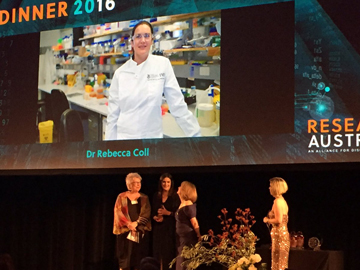 17 November 2016, Young immunologist awarded for impact, UQ News
17 November 2016, Young immunologist awarded for impact, UQ News
Dr Rebecca Coll, a postdoc from the Inflammasome Lab, has been awarded the prestigious Research Australia Discovery Award for 2016, at the Research Australia Health and Medical Research Awards ceremony in Sydney. Rebecca received the award for her discovery of promising anti-inflammatory compounds that block the NLRP3 inflammasome. She hopes that these compounds will be used to treat patients with inflammatory disease. “I am absolutely thrilled to receive this award and feel that it recognises our fantastic collaboration between chemistry and biology which has driven this innovative research,” Dr Coll said.
UQ News article
Inflammasome Lab article
12 September 2016, UQ’s work on inflammatory disease treatment wins $22m global investment, UQ News
Research from the Inflammasome Lab performed by Dr Rebecca Coll and Dr Kate Schroder, in collaboration with Dr Avril Robertson and Professor Matt Cooper (IMB), and Professor Luke O’Neill's team (Trinity College Dublin), has attracted investment for a new start-up company to develop treatments for inflammatory disorders including Parkinson’s disease and asthma. The €15 million (A$22 million) investment, co-led by two top global life science investment firms, Novartis Venture Fund and Fountain Healthcare Partners, is one of the largest biotech Series A investments for intellectual property originating from an Australian university.
UQ News article
28 October 2014, Young immunologist receives coveted award for inflammation research, IMB News
Kate Schroder was awarded the Milstein Young Investigator Award for her outstanding contributions to basic immunology research at the annual International Cytokine and Interferon Society Meeting in Melbourne. Seymour Milstein M.D. and his wife Vivian established the Milstein awards to foster interferon and cytokine research in the hope of developing new treatments for disease. “My research focuses on inflammasomes, which is a high-tech communication system that coordinates inflammatory responses by triggering production of cytokines. I feel honoured to be recognised for my research into the pathways of inflammation, and I hope to discover much more about our immune system in the future, ” Dr Schroder said.
IMB News article
21 November 2013, Megafauna expert is Queensland's tallest poppy, UQ News, Researchers bloom at Tall Poppy Awards, IMB News
Dr Kate Schroder was among the 11 Queensland Tall Poppy Award winners in 2013, with palaeontologist Dr Gilbert Price named the Queensland Tall Poppy of the Year. Dr Kate Schroder characterises the fundamental pathways used by the body to detect microbes and launch anti-microbial defence programs. Kate’s research is helping us to understand exactly how the body fights infection and paves the way for the development of new anti-infective agents or vaccine formulations to combat infectious disease.
UQ News article
IMB News article
17 September 2013, Awards recognise UQ's rising stars of research, UQ News, IMB News
Dr Kate Schroder one of 8 researchers celebrated at University of Queensland Foundation Research Excellence Awards. Kate received the award grant for her project, Pinpointing the initiation of immune response. She is researching the “inflammasome”, which activates the immune system during infection. “If we know the pathways that allow our bodies to fight infectious disease, we may be able to develop drugs to boost our natural defences,” Dr Schroder says.
UQ News article
IMB News article
Dr Kate Schroder from The University of Queensland on Vimeo.
18 August 2010, Chronic pain and immune research take top awards, UQ News
7 June 2010, IMB researchers top state with pain and immune research, IMB News
Dr Kate Schroder receives one of four awards on offer at the Queensland Health and Medical Research Awards. Dr Schroder won Postdoctoral Researcher of the Year for her work studying the innate immune system, which provides general protection against infection from invading organisms. Dr Schroder found the active genes in the mouse and human innate immune systems differ by about 20 percent. This information, and the exact genes which differ, will be useful for immunologists using mice as a model for human diseases.
UQ News article
IMB News article
17 March 2015, New money for Queensland's Parkinson's research, DPS News
6 March 2015, University of Queensland receives grant for Parkinsons research, Future Unlimited, Australian Government
6 March 2015, New money for UQ Parkinson's research, UQ News
9 February 2015, New Queensland Research Project, Shake It Up
A UQ collaboration including Kate Schroder has been awarded a research grant from The Michael J. Fox Foundation for Parkinson's Research and its major Australian funding partner, Shake It Up Australia Foundation. The collaboration includes the teams of five UQ researchers led by Associate Professor Trent Woodruff including Dr Richard Gordon, Professor Matt Cooper, Dr Kate Schroder and Dr Avril Robertson.
DPS News article
Future Unlimited News article
UQ News article
Shake It Up News article
12 November 2014, Young researchers awarded UQ fellowships
Dave Boucher, one of three talented young researchers awarded UQ postdoctoral fellowships to support their promising research. Young immunologist Dr Dave Boucher will use his fellowship to unlock the secrets of the inflammasome – a cluster of molecules that trigger inflammation in the body. His research, performed in Dr Kate Schroder’s lab, will help us to understand how inflammasome dysfunction can contribute to chronic inflammatory disease.
IMB News article
20 October 2014, Imaging centre to unravel secrets of immune system, UQ News
University of Queensland researchers will play a key role in a new $39 million research centre working to unravel the secrets of the immune system. In addition to researchers from La Trobe, Monash and The University of New South Wales, UQ’s principal investigator is David Fairlie, with associate investigators Matt Sweet, Kate Schroder and Ranjeny Thomas.
UQ News article
21 June 2012, Diabetes and sugarcane research at IMB receives a boost, IMB News, IMB News article
19 June 2012, Diabetes and sugarcane research boosted by Queensland Government, UQ News, UQ News article
19 June 2012, UQ welcomes the govt’s science investments in the future, UQ News, UQ News article
Dr Kate Schroder receives project funding from the Queensland Government to combat type 2 diabetes, one of the fastest-growing preventable diseases in Queensland.
RESEARCH SUPPORT
Our research past and present has been generously supported by the following organisations

Copyright © 2017 - The University of Queensland

